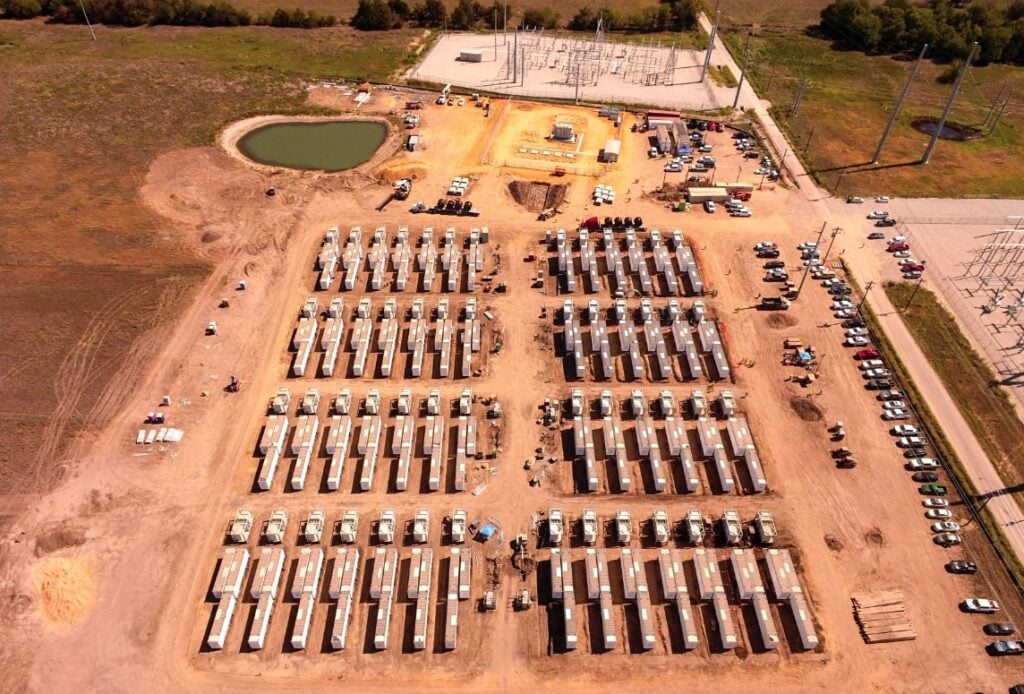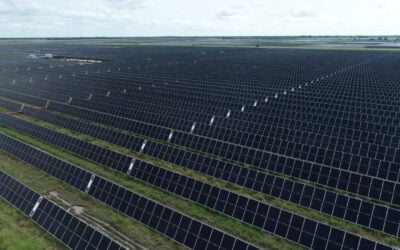
Financial performance will ultimately determine the success of AI-based battery storage optimisation platforms, Gridmatic told Energy-Storage.news in response to recent comments from one developer.
The firm, which describes itself as an AI-enabled power marketer but in industry shorthand would be an ‘optimiser’, offers AI-based forecasting and clean energy asset management in electricity markets, including energy storage.
Enjoy 12 months of exclusive analysis
- Regular insight and analysis of the industry’s biggest developments
- In-depth interviews with the industry’s leading figures
- Annual digital subscription to the PV Tech Power journal
- Discounts on Solar Media’s portfolio of events, in-person and virtual
Its VP of Business Development, David Miller, responded to comments by US developer Spearmint Energy’s head of trading Nick Dazzo in an interview at the Energy Storage Summit USA in Texas at the end of March this year. In it, Dazzo spoke bout the limitations of AI-based optimisation, which he called “something of a black box” which the firm was “a little bit distrustful of”.
Miller said: “Our view is the best explanation is profitability over an extended time; that the results will ultimately will speak for themselves to the fact that these models can outperform what humans are doing.”
Asked if explainability of its AI-based algorithms – a lack thereof which Dazzo was critical of – was important, Miller added:
“It’s important to have oversight on it. We don’t want to have a situation where there is no human who understands the market who is monitoring things. It’s like self-driving cars today. We need safety drivers available watching but fundamentally the performance will be based on the data rather than what’s going on under the hood.”
Miller spent five years from 2014-2019 at Greensmith Energy, the software-focused battery energy storage system integrator acquired by Wartsila during Miller’s tenure.
Gridmatic’s AI algorithms forecast prices and play battery storage into whichever revenue streams make the most sense based on those forecasts. Miller was speaking to Energy-Storage.news shortly after the firm published a report on the ERCOT, Texas market, which claimed that AI-based forecasting models could have boosted some BESS projects revenues by as much as 46% in 2022 through optimisation.
Within ERCOT, Miller – and many others, it should be said – posited that such forecasting will increasingly be needed as the market shifts towards energy trading and other revenue sources as its main ancillary service market RRS gets saturated.
The company offers its solution either on a tolling agreement – long-term management of a BESS project with Gridmatic taking on all the market risk – or under a revenue-sharing model where the project owner bears some of the market risk.
It has 50MW under management in its tolling business but none currently under its revenue-share model. Energy-Storage.news pointed out that some might interpret this as a sign that the industry does not yet believe enough in the platform enough to share risk with it.
In response, a spokesperson said: “The storage industry is pretty early in its evolution in general. Fixed price tolling contracts are a more familiar arrangement for storage owners, hence our earliest contracts were for fixed-price arrangements simply because they require less due diligence and are quicker to execute. Gridmatic is in advanced discussions with multiple storage owners for revenue-share arrangements.”
Miller reckoned that the market penetration of AI-based optimisers in the ERCOT market is still quite low.
“Looking at the results out there, there are lots of systems that are being dispatched on a schedule, having the same awards each day. There are others doing more sophisticated dispatch awards. The ones making the most money are the ones that are bidding across multiple services, and those indicate to us they are managed by AI platforms.”
This article was amended after publication to reference when Dazzo’s comments were made.






